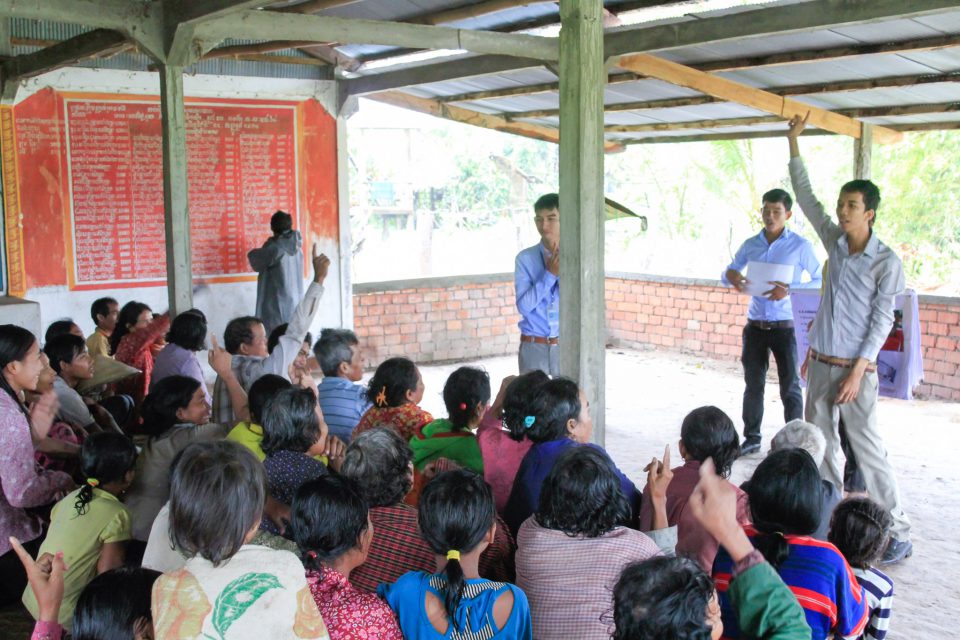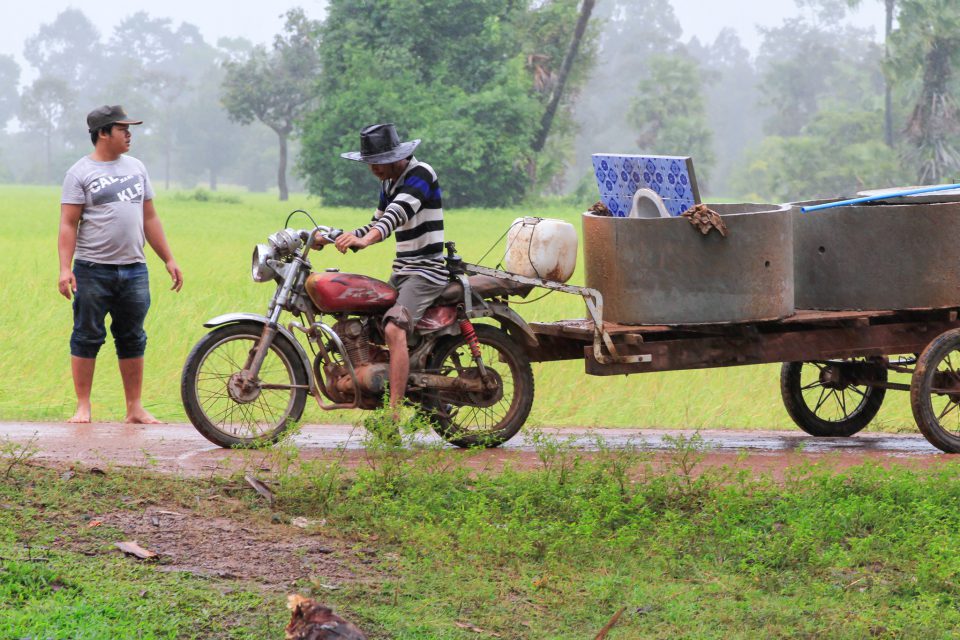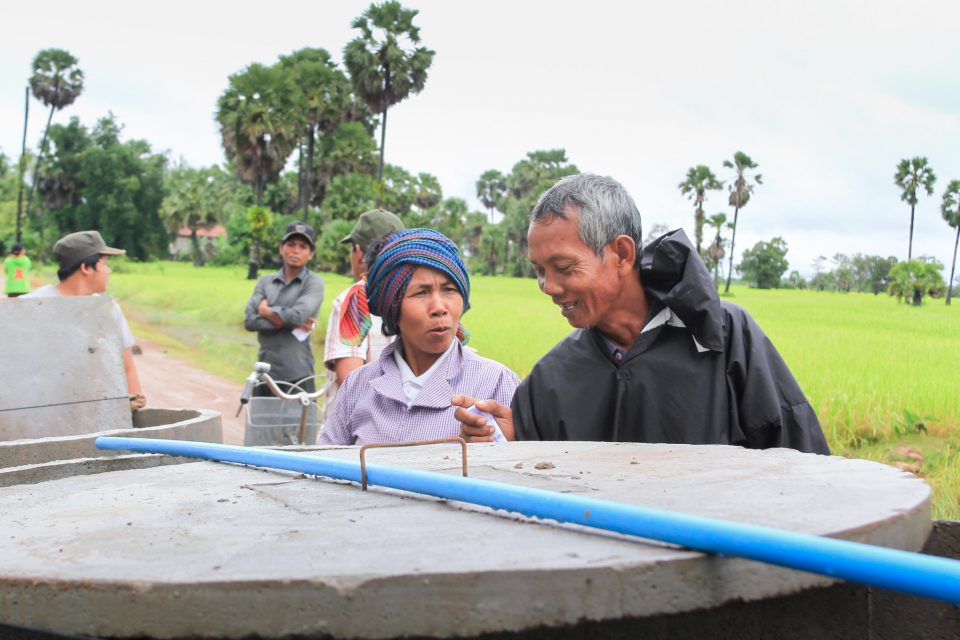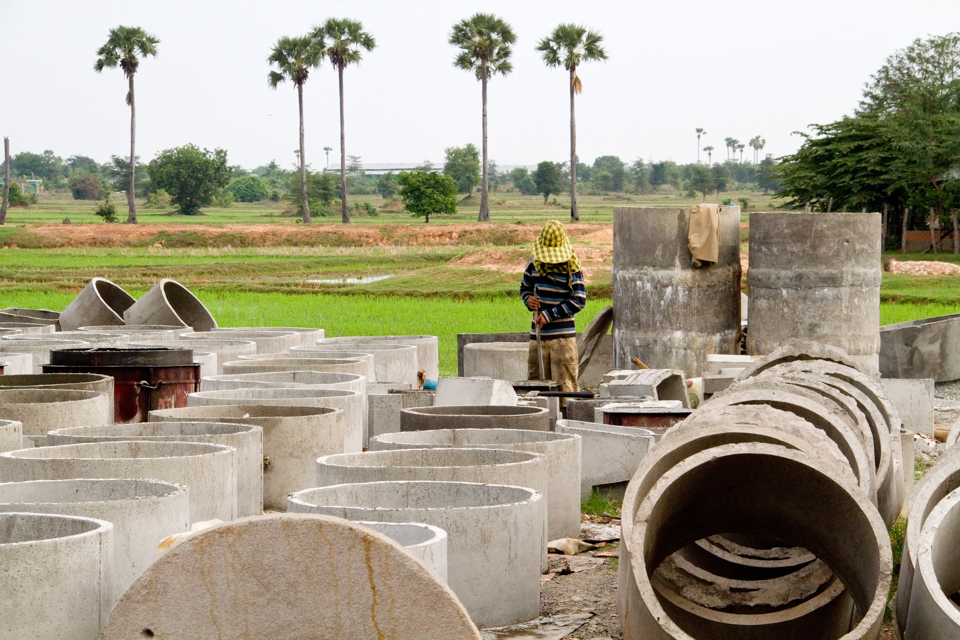World Toilet Day Highlights Sanitation Solutions
From The Cambodia Daily, November 20, 2013
By SIMON HENDERSON and AUN PHEAP
Yesterday marked World Toilet Day, the annual attempt to push the issue of open defecation back into the spotlight and highlight the preventable illnesses that are caused by what is still a very common practice in Cambodia, which has the lowest toilet coverage in Southeast Asia.

About 30 villagers joined sale event in Pich Songva Commune, Bori Bo District, Kompong Chhnang Province
Defecating in the open contaminates local water sources and causes a significant rural public health risk including diarrhea and stunting in children, and though the government has set a target of universal access to toilet by 2025, currently just 28 percent of the rural population has access to a latrine, according to the most recent figures by the World Health Organization.
This is the 13th annual World Toilet Day, but the first time that the U.N. has officially sanctioned the event. In a statement, Catarina de Albuquerque, U.N. special rapporteur on the right to safe drinking water and sanitation, said that not enough progress is being made in increasing access to toilets in the developing world.

For every purchase, the supplier is responsible for the delivery of the latrine set for free of charge to the villager’s house.
In Cambodia, sanitation NGO WaterSHED’s “Hands-Off” project is experimenting with a market-based approach to the sanitation problem, encouraging villagers to buy latrines themselves rather than donating toilets.
“No one ever believed that poor villagers would want to buy latrines, said Phav Daroath, marketing manager at WaterSHED Cambodia. “But encouraging people to use their own resources puts more value on the latrine and has as aspirational affect on their neighbors.”
The NGO also helps those too poor to buy a $45 latrine outright to get a low-interest microcredit loan to cover the cost, through its partner Vision Fund.
Khev Chea, 64, who lives in Phnom Srouch district in Kompong Speu province, recently purchased a latrine through WaterSHED, which cost 200,000 riel, or about $50.

Villagers observe the displayed latrine set and discuss the purchases of latrines after attending a sales event in Kompong Chhnang province.
“I bought an outdoor latrine that I am paying 20,000 riel [about $5] per month, and within 10 months I will have finished paying for it.” He said. “I don’t know if my neighbors are jealous, but I think these loans persuade people who cannot afford a latrine to buy one,” he said.
WaterSHED uses local sales agents to spike demand by educating villagers about the health benefits of buying a latrine and cost benefits of not getting sick, while local village chiefs are setting an example by investing in their own toilets – 50,000 latrines have been installed across seven provinces over the past two years as a result of the program.
Nov Sensren, a latrine maker and salesman in Kompong Cham province, said that before cooperating with WaterSHED in July 2012, he was only selling about three toilets per month.
“After learning how to increase production, sell effectively and work with the local government, I have sold 300 in the past three months,” he said.
Read original article click here.

